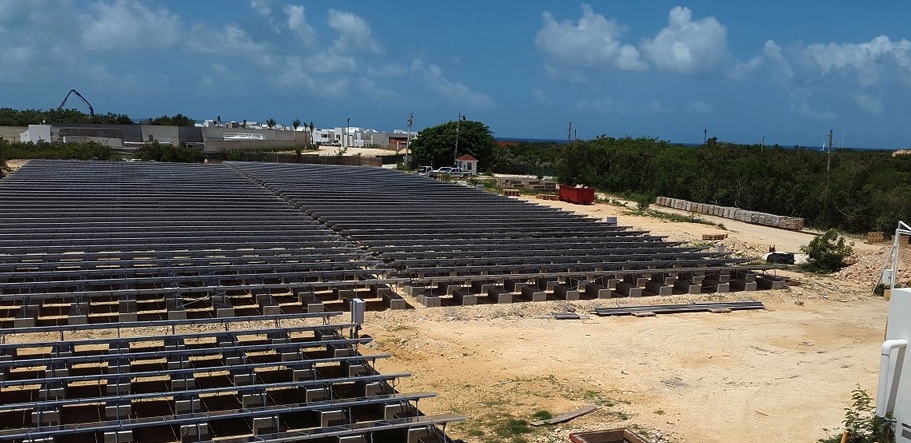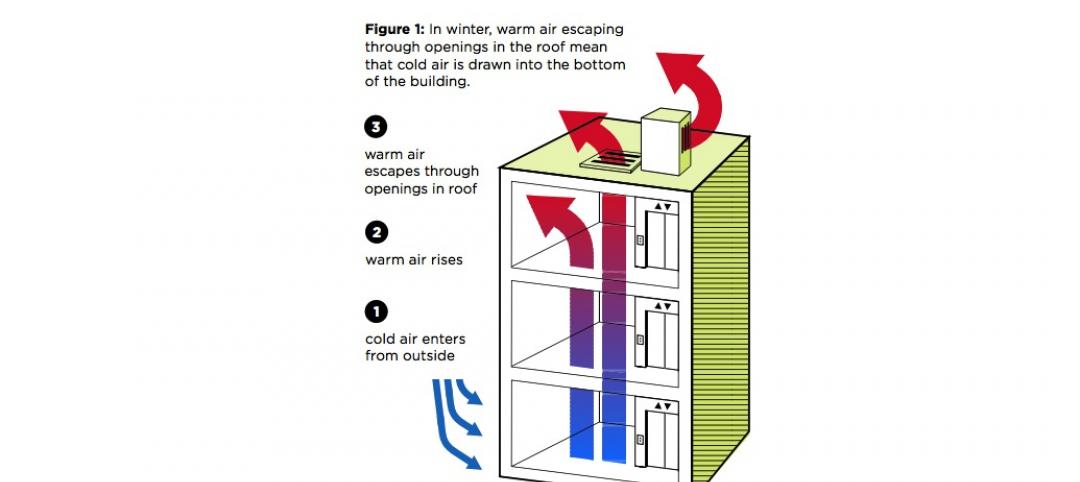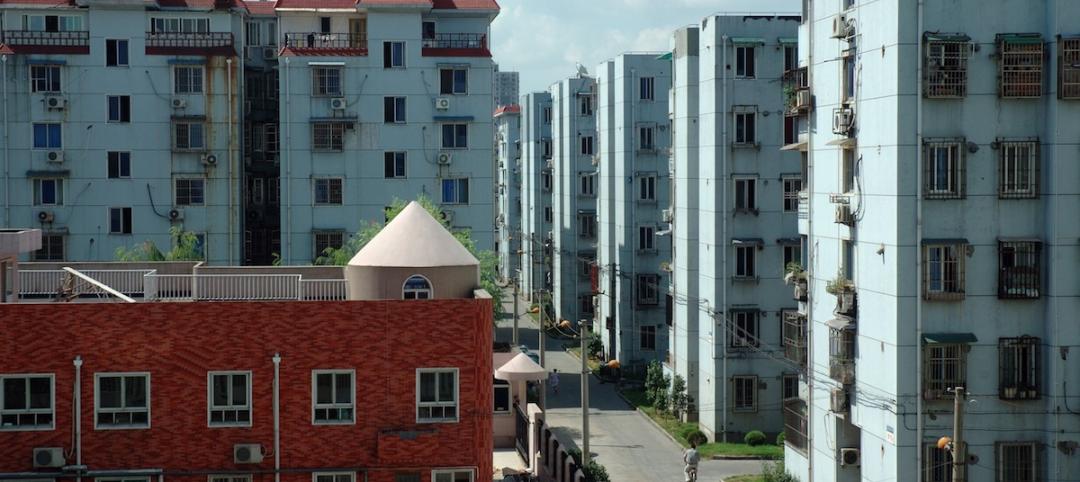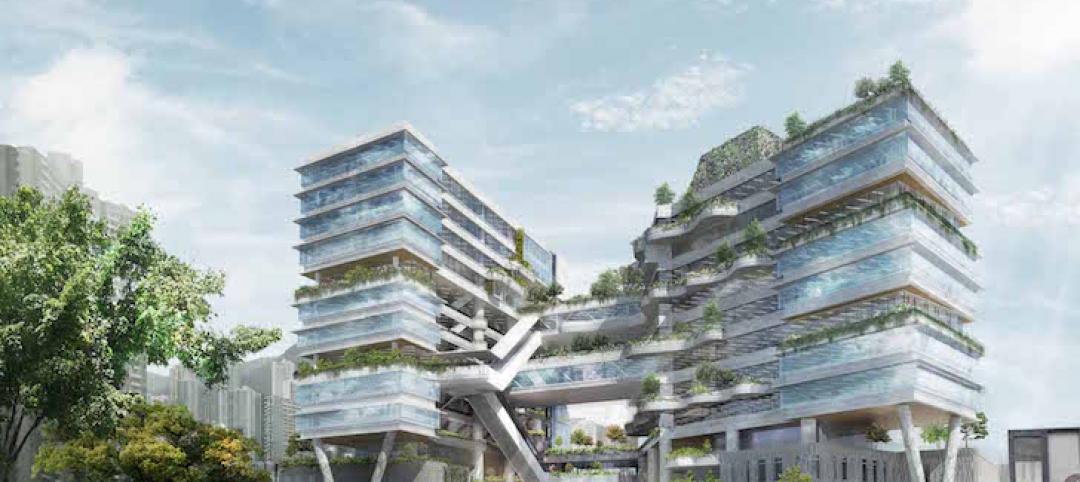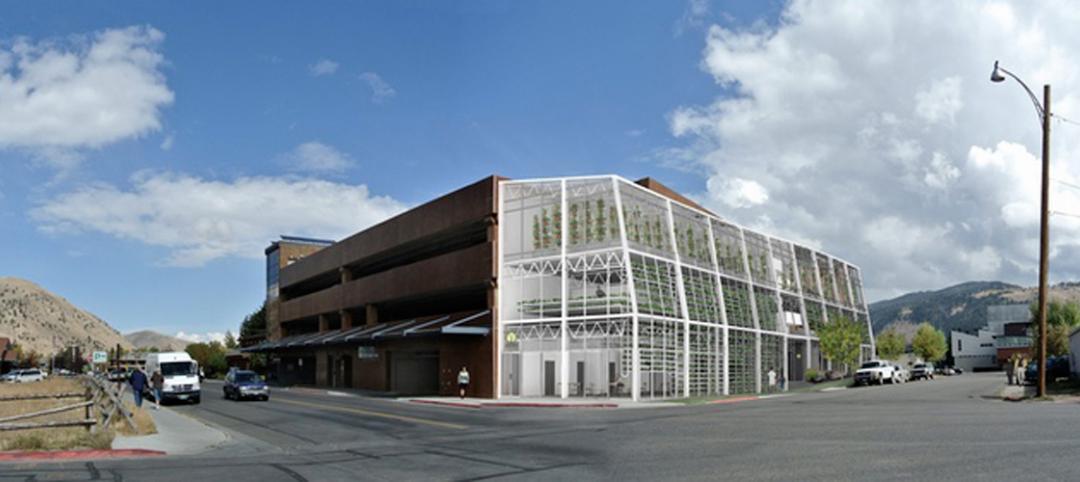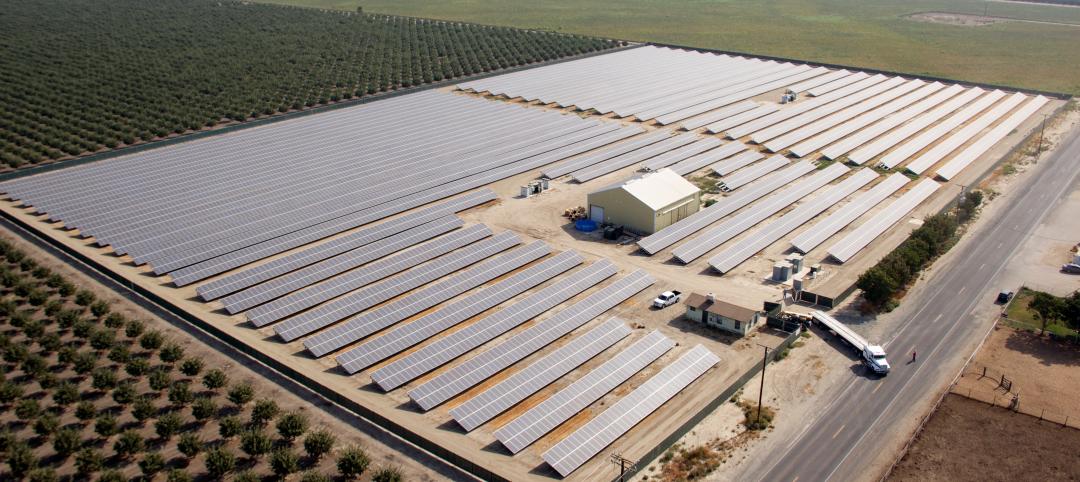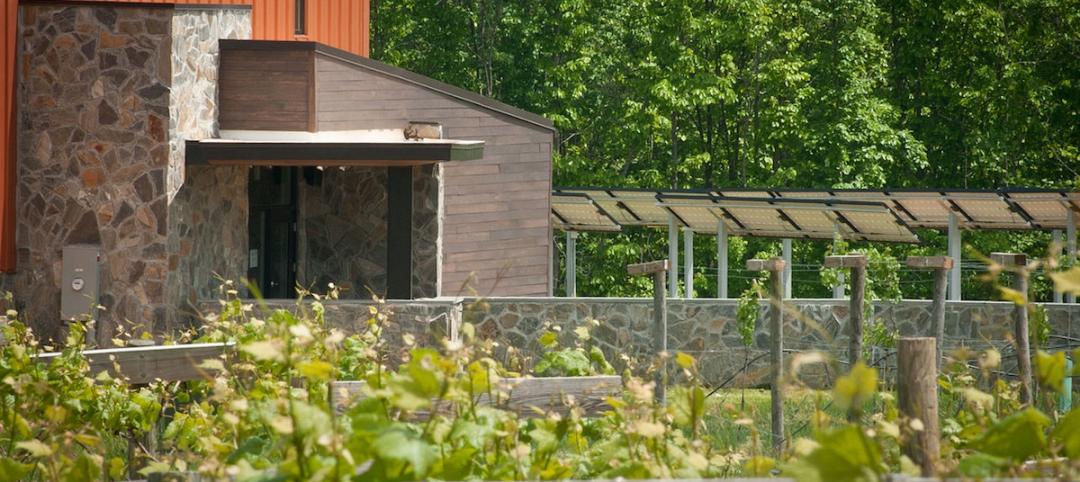Strapped with both water and energy crises, several island nations are investing in solar-powered water plants to attain more resilient water and power sources, according to executives of a major international resort chain.
One of the latest examples is the CuisinArt Golf Resort & Spa’s new installation in Anguilla, an island in the British West Indies east of Puerto Rico. The innovative solar generation system powers the resort’s reverse-osmosis water plant, and it is seen as a model for similarly situated Caribbean islands and hospitality operators.
Working with GE and Inovateus Solar, a South Bend, Ind.-based photovoltaic system developer, CuisinArt, installed its own 1.0-MW solar power generation plant with a battery backup system to store energy. In this way, says Rory Purcell, the resort’s chief engineer, the off-grid plant will provide an uninterruptible energy supply for the reverse-osmosis (RO) water treatment system.
The RO plant filters and desalinates supply water, creating potable “solar water” to the residents on the island, guests of the resort and irrigation water for the golf course, says Purcell.
The project—designed and constructed by CuisinArt and Inovateus with the contractors SwitchLogix and PDE Total Energy Solutions—has been designed in such a way that it is completely isolated from the grid. It also has the unique benefit of being able to reconnect partial loads, in a discretionary way, to continue to desalinate outside solar production hours. For those hours when the sun is down, it depends on the local utility, Anguilla Electricity Company Ltd.
Anguilla recently joined the group Carbon War Room’s Ten-Island Challenge to reduce the Caribbean’s carbon footprint, and the CuisinArt plant is the first major foray into renewables for the island. The new solar plant saves 1.2 million pounds of carbon dioxide emissions annually, says Inovateus executive Peter Rienks. “The payback on this project will immediately save CuisinArt hundreds of thousands of dollars per year. Even more important, it provides a solution to the global water crisis,” he explains. “This system could be duplicated on any island in any country around the world.”
According to CuisinArt’s Purcell, the initiative is both viable and secure. “It is a proven strategy to penetrate the national demand with renewable energy far in excess of the usual grid-tied limits,” he says. PV is a low “environmental impact source, designed to withstand Category 5 hurricanes, low-flying objects and poorly directed golf balls,” he chuckles. “It has low maintenance requirements with a life expectancy in excess of 25 years.”
The new solar array supports the plant’s daily capacity of 1.25 million gallons of fresh water, which serves the 130-key resort and its Greg Norman Signature Golf Course, as well as the new 80-key Reef Hotel, an associated spa and six full-service restaurants. CuisinArt also operates hydroponic and organic farms, a 500,000-square-foot residential estate, and -- of course -- an extensive irrigation system.
“CuisinArt has set a sustainable precedent for photovoltaic water purification throughout the world,” says Peter Foss an executive with GE. “Not only will the project have a great return on investment, it will also help reduce the island’s dependence on fossil fuels and help create a cleaner environment for generations to come.”
Related Stories
Codes and Standards | Mar 29, 2015
Elevator shafts a major source of heat loss in New York City
A typical New York apartment building loses thousands of dollars worth of energy every year from leaky elevator shafts that vent warm air at the top of the building and draw in cold air at the bottom, according to a new Urban Green Council report.
Green | Mar 29, 2015
Passive House Institute launches ‘cost-effective’ passive building standard
The group says the building energy performance target is in the “sweet spot” where cost effectiveness overlaps with aggressive energy and carbon reduction.
Sponsored | Walls and Partitions | Mar 25, 2015
Metl-Span systems meet design needs in cost effective manner
The goal from the beginning was to construct an energy efficient building with insulated metal panels.
Green | Mar 25, 2015
WELL Building Standard introduced in China
The WELL Building Standard is a performance-based system for measuring, certifying and monitoring features that impact human health and wellbeing, through air, water, nourishment, light, fitness, comfort, and mind.
Higher Education | Mar 23, 2015
Hong Kong university building will feature bioclimatic façade
The project's twin-tower design opens the campus up to the neighboring public green space, while maximizing the use of summer winds for natural ventilation.
Green | Mar 22, 2015
6 myths holding back green building
Sustainable design has proven benefits, so why isn’t it more widely adopted?
Green | Mar 18, 2015
Vertical urban greenhouses will feed import-reliant Jackson Hole, Wyo.
A Jackson Hole, Wyo., start up aims to reduce the city’s susceptibility to food deficits by building vertical greenhouses.
Sponsored | Energy Efficiency | Mar 16, 2015
California cuts its carbon footprint with solar
Spanning four locations in Central Valley, the California Renewable Energy Small Tariff projects pack a lot of power and are prime examples of the real-life benefits of going solar.
Codes and Standards | Mar 12, 2015
Energy Trust of Oregon offers financial incentives for net-zero buildings
The organization is offering technical assistance along with financial benefits.
Codes and Standards | Mar 5, 2015
AEC industry groups look to harmonize green building standards, codes
The USGBC, ASHRAE, ICC, IES, and AIA are collaborating on a single green code.


